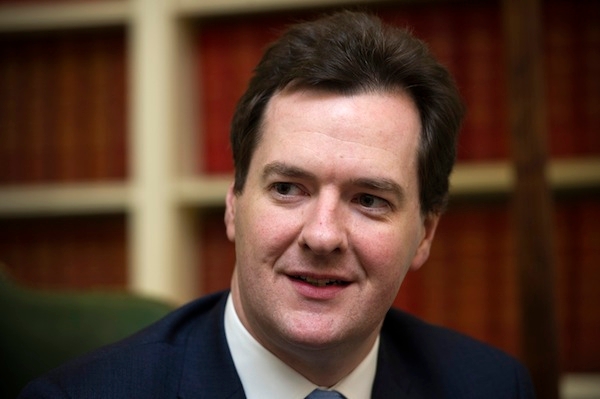Fitch’s announcement that it is downgrading the UK’s credit rating to AA+ isn’t as politically explosive as the downgrade from Moody’s in February, as it was inevitable that once one major ratings agency dropped the AAA, the others would follow like dominoes. The bigger story will be when all agencies have dropped the rating.
Fitch said this afternoon that the reason for the downgrade was that ‘the fiscal space to absorb further adverse economic and financial shocks is no longer consistent with a ‘AAA’ rating’. The agency forecasts that general government gross debt will peak at 101 per cent of GDP in 2015/16, having previously warned that failure to turn this around and place debt on a downward trajectory towards 90 per cent of GDP would trigger a downgrade.
It also pointed to the budget deficit, warning, as the IFS did after the Budget, that ‘the slower pace of deficit reduction means that the next government will be required to implement substantial spending reductions (and/or tax increases) if public debt is to be stabilised and reduced over the medium term’. But it emphasised that the UK continues to hold an ‘extremely strong credit profile’.
Politically this is annoying for George Osborne, coming as it does ahead of next week’s crucial GDP figures and alongside the comments this week from IMF chief economist Olivier Blanchard. The ratings agencies have been regarded with suspicion for some time, but the IMF has come under fire from some quarters this week too (Jeremy Warner said it gave the impression that it was ‘all out of ideas and solutions’). Osborne will be wishing he hadn’t set much store by either of them.
But as Osborne’s critics on the left crank up their anti-austerity machines, they should probably have a little sit down to read the Fitch assessment in full. Nowhere does it say that slowing the pace of deficit reduction measures would be a good thing. Indeed, as I’ve explained above, its main gripe is with a slower pace of deficit reduction and failure to reduce government debt. Labour will attack this as another sign that sticking to ‘Plan A’ isn’t working, but what Fitch’s analysis shows is how far off Plan A Osborne is, rather than how foolishly stubborn he is being.
All of which leaves the Labour party trying to explain the difference between good and bad borrowing: not a debate that’s going to worry ministers unduly.







Comments